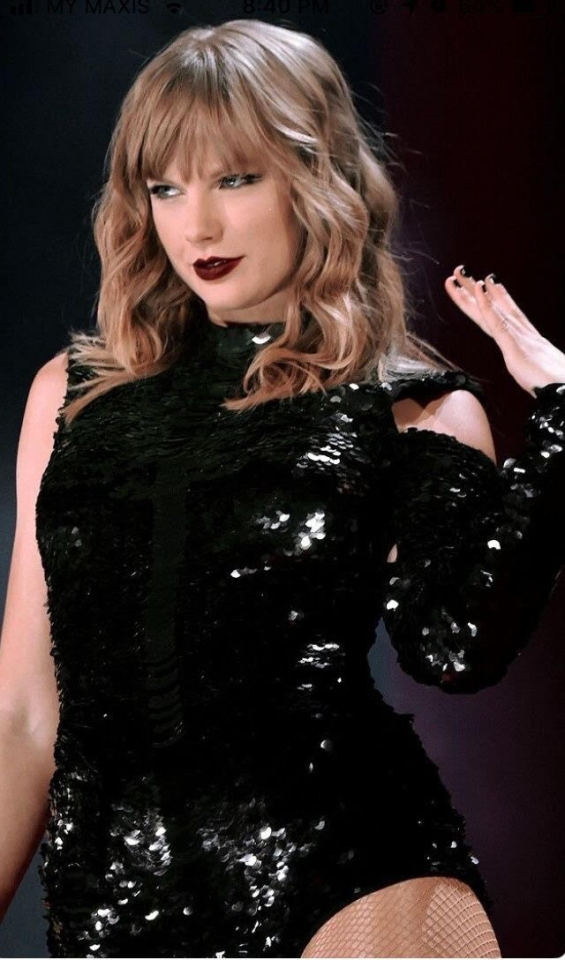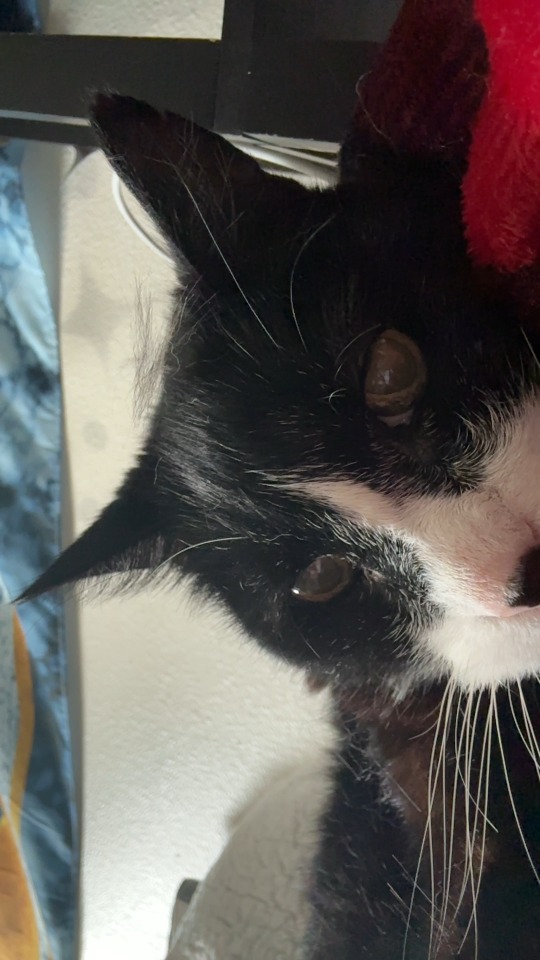#reputation tour seattle
Text
Don't Blame Me in Seattle, via lysscornelius
#don't blame me#reputation era#eras tour seattle#taylor swift#eras tour#eras tour spoilers#taylor swift eras tour
48 notes
·
View notes
Text





oh reputation tour, you were something else 🖤🖤🖤🖤🖤🖤
#AND I SAW HER IN SEATTLE#taylor swift#reputation#reputation tour#reputation stadium tour#...ready for it?#end game#i did something bad#dont blame me#delicate#look what you made me do#so it goes#gorgeous#getaway car#king of my heart#dancing with our hands tied#dress#this is why we can't have nice things#call it what you want#new years day#reputation tv#rep tv
4 notes
·
View notes
Text
me if i hear new romantics, call it what you want, or new year’s day on a glitchy live stream and not at seattle night 1 @taylorswift @taylornation

#taylor swift#the eras tour#in my eras era#the eras tour seattle#seattle#washington#new years day#call it what you want#reputation#1989#taylor’s version
6 notes
·
View notes
Text
Taylor Swift performs "This is Why We Can't Have Nice Things" at Lumen Field in Seattle, Washington on July 22, 2023.
#taylor swift#the eras tour#this is why we can't have nice things#reputation#lumen field#seattle washington#night 44#source: lindsays_lashandbrowhive on tiktok
3 notes
·
View notes
Text
Taylor Swift has a personal vendetta against my entire family btw
She played my mom’s absolute favorite song (Getaway Car) the night before our show
And now she played my brother’s absolute favorite song (TIWWCHNT) the night before his show
Taylor, what did we ever do to you 😭
#taylor swift#the eras tour#eras tour seattle 1#tiwwchnt#getaway car#reputation#eras tour metlife 1#eras tour seattle 2#eras tour metlife 2
4 notes
·
View notes
Text

i still cannot believe this is really happening
see you in seattle @taylorswift 🥰
#taylor swift#the eras tour#taylor swift eras tour#taylor nation#taylor swift seattle#taylor swift lumen field#taylor swift the eras tour#eras tour seattle#the eras tour seattle#debut#fearless tv#speak now#red tv#1989#reputation#lover#folklore#evermore#midnights#seattletstheerastour
3 notes
·
View notes
Text
catch me in section 319 at the july 23rd show for the Eras Tour ascending when taylor plays getaway car
4 notes
·
View notes
Text
at seattle night 1 we got “this is why we can’t have nice things” and “everything has changed”. i was on the verge of violently sobbing the whole time.
best night of my life.
@taylorswift @taylornation
#taylor swift#taylornation#the eras tour#folklore#evermore#reputation#ts 1989#lover taylor swift#midnights#i am mother’s favourite child#everything has changed#this is why we can't have nice things#eras tour seattle#fearless#speak now#taylor’s version#alex’s hot takes
1 note
·
View note
Text
2 seattle 7/22/23 eras tour tickets
Tickets for sale. They’re my sisters, she cant go.
2 tickets
sec 314, row a, seats 1 & 2
#taylor swift#the eras tour#lumen field#seattle#swifties#speak now tv#speak now taylor’s version#taylors version#Midnights#fearless tv#fearless#reputation
1 note
·
View note
Text
The majority of censorship is self-censorship

I'm on tour with my new novel The Bezzle! Catch me TONIGHT in SAN DIEGO (Feb 22, Mysterious Galaxy). After that, it's LA (Saturday night, with Adam Conover), Seattle (Monday, with Neal Stephenson), then Portland, Phoenix and more!

I know a lot of polymaths, but Ada Palmer takes the cake: brilliant science fiction writer, brilliant historian, brilliant librettist, brilliant singer, and then some:
https://pluralistic.net/2022/02/10/monopoly-begets-monopoly/#terra-ignota
Palmer is a friend and a colleague. In 2018, she, Adrian Johns and I collaborated on "Censorship, Information Control, & Information Revolutions from Printing Press to Internet," a series of grad seminars at the U Chicago History department (where Ada is a tenured prof, specializing in the Inquisition and Renaissance forbidden knowledge):
https://ifk.uchicago.edu/research/faculty-fellow-projects/censorship-information-control-information-revolutions-from-printing-press/
The project had its origins in a party game that Ada and I used to play at SF conventions: Ada would describe a way that the Inquisitions' censors attacked the printing press, and I'd find an extremely parallel maneuver from governments, the entertainment industry or other entities from the much more recent history of internet censorship battles.
With the seminars, we took it to the next level. Each 3h long session featured a roster of speakers from many disciplines, explaining everything from how encryption works to how white nationalists who were radicalized in Vietnam formed an armored-car robbery gang to finance modems and Apple ][+s to link up neo-Nazis across the USA.
We borrowed the structure of these sessions from science fiction conventions, home to a very specific kind of panel that doesn't always work, but when it does, it's fantastic. It was a natural choice: after all, Ada and I know each other through science fiction.
Even if you're not an sf person, you've probably heard of the Hugo Awards, the most prestigious awards in the field, voted on each year by attendees of the annual World Science Fiction Convention (Worldcon). And even if you're not an sf fan, you might have heard about a scandal involving the Hugo Awards, which were held last year in China, a first:
https://www.nbcnews.com/news/world/science-fiction-authors-excluded-hugo-awards-china-rcna139134
A little background: each year's Worldcon is run by a committee of volunteers. These volunteers put together bids to host the Worldcon, and canvass Worldcon attendees to vote in favor of their bid. For many years, a group of Chinese fans attempted to field a successful bid to host a Worldcon, and, eventually, they won.
At the time, there were many concerns: about traveling to a country with a poor human rights record and a reputation for censorship, and about the logistics of customary Worldcon attendees getting visas. During this debate, many international fans pointed to the poor human rights record in the USA (which has hosted the vast majority of Worldcons since their inception), and the absolute ghastly rigmarole the US government subjects many foreign visitors to when they seek visas to come to the US for conventions.
Whatever side of this debate you came down on, it couldn't be denied that the Chinese Worldcon rang a lot of alarm-bells. Communications were spotty, and then the con was unceremoniously rescheduled for months after the original scheduled date, without any good explanation. Rumors swirled of Chinese petty officials muscling their way into the con's administration.
But the real alarm bells started clanging after the Hugo Award ceremony. Normally, after the Hugos are given out, attendees are given paper handouts tallying the nominations and votes, and those numbers are also simultaneously published online. Technically, the Hugo committee has a grace period of some weeks before this data must be published, but at every Worldcon I've attended over the past 30+ years, I left the Hugos with a data-sheet in my hand.
Then, in early December, at the very last moment, the Hugo committee released its data – and all hell broke loose. Numerous, acclaimed works had been unilaterally "disqualified" from the ballot. Many of these were written by writers from the Chinese diaspora, but some works – like an episode of Neil Gaiman's Sandman – were seemingly unconnected to any national considerations.
Readers and writers erupted in outrage, demanding to know what had happened. The Hugo administrators – Americans and Canadians who'd volunteered in those roles for many years and were widely viewed as being members in good standing of the community – were either silent or responded with rude and insulting remarks. One thing they didn't do was explain themselves.
The absence of facts left a void that rumors and speculation rushed in to fill. Stories of Chinese official censorship swirled online, and along with them, a kind of I-told-you-so: China should never have been home to a Worldcon, the country's authoritarian national politics are fundamentally incompatible with a literary festival.
As the outrage mounted and the scandal breached from the confines of science fiction fans and writers to the wider world, more details kept emerging. A damning set of internal leaks revealed that it was those long-serving American and Canadian volunteers who decided to censor the ballot. They did so out of a vague sense that the Chinese state would visit some unspecified sanction on the con if politically unpalatable works appeared on the Hugo ballot. Incredibly, they even compiled clumsy dossiers on nominees, disqualifying one nominee out of a mistaken belief that he had once visited Tibet (it was actually Nepal).
There's no evidence that the Chinese state asked these people to do this. Likewise, it wasn't pressure from the Chinese state that caused them to throw out hundreds of ballots cast by Chinese fans, whom they believed were voting for a "slate" of works (it's not clear if this is the case, but slate voting is permitted under Hugo rules).
All this has raised many questions about the future of the Hugo Awards, and the status of the awards that were given in China. There's widespread concern that Chinese fans involved with the con may face state retaliation due to the negative press that these shenanigans stirred up.
But there's also a lot of questions about censorship, and the nature of both state and private censorship, and the relationship between the two. These are questions that Ada is extremely well-poised to answer; indeed, they're the subject of her book-in-progress, entitled Why We Censor: from the Inquisition to the Internet.
In a magisterial essay for Reactor, Palmer stakes out her central thesis: "The majority of censorship is self-censorship, but the majority of self-censorship is intentionally cultivated by an outside power":
https://reactormag.com/tools-for-thinking-about-censorship/
States – even very powerful states – that wish to censor lack the resources to accomplish totalizing censorship of the sort depicted in Nineteen Eighty-Four. They can't go from house to house, searching every nook and cranny for copies of forbidden literature. The only way to kill an idea is to stop people from expressing it in the first place. Convincing people to censor themselves is, "dollar for dollar and man-hour for man-hour, much cheaper and more impactful than anything else a censorious regime can do."
Ada invokes examples modern and ancient, including from her own area of specialty, the Inquisition and its treatment of Gailileo. The Inquistions didn't set out to silence Galileo. If that had been its objective, it could have just assassinated him. This was cheap, easy and reliable! Instead, the Inquisition persecuted Galileo, in a very high-profile manner, making him and his ideas far more famous.
But this isn't some early example of Inquisitorial Streisand Effect. The point of persecuting Galileo was to convince Descartes to self-censor, which he did. He took his manuscript back from the publisher and cut the sections the Inquisition was likely to find offensive. It wasn't just Descartes: "thousands of other major thinkers of the time wrote differently, spoke differently, chose different projects, and passed different ideas on to the next century because they self-censored after the Galileo trial."
This is direct self-censorship, where people are frightened into silencing themselves. But there's another form of censorship, which Ada calls "middlemen censorship." That's when someone other than the government censors a work because they fear what the government would do if they didn't. Think of Scholastic's cowardly decision to pull inclusive, LGBTQ books out of its book fair selections even though no one had ordered them to do so:
https://www.nytimes.com/2023/05/06/books/scholastic-book-racism-maggie-tokuda-hall.html
This is a form of censorship outsourcing, and it "multiplies the manpower of a censorship system by the number of individuals within its power." The censoring body doesn't need to hire people to search everyone's houses for offensive books – it can frighten editors, publishers, distributors, booksellers and librarians into suppressing the books in the first place.
This outsourcing blurs the line between state and private surveillance. Think about comics. After a series of high-profile Congressional hearings about the supposed danger of comics to impressionable young minds, the comics industry undertook a regime of self-censorship, through which the private Comics Code Authority would vet comings for "dangerous" content before allowing its seal of approval to appear on the comics' covers. Distributors and retailers refused to carry books without a CCA stamp, so publishers refused to publish books unless they could get a CCA stamp.
The CCA was unaccountable, capricious – and racist. By the 60s and 70s, it became clear that comic about Black characters were subjected to much tighter scrutiny than comics featuring white heroes. The CCA would reject "a drop of sweat on the forehead of a Black astronaut as 'too graphic' since it 'could be mistaken for blood.'" Every comic that got sent back by the CCA meant long, brutal reworkings by writers and illustrators to get them past the censors.
The US government never censored heroes like Black Panther, but the chain of events that created the CCA "middleman censors" made sure that Black Panther appeared in far fewer comics starring Marvel's most prominent Black character. An analysis of censorship that tries to draw a line between private and public censorship would say that the government played no role in Black Panther's banishment to obscurity – but without Congressional action, Black Panther would never have faced censorship.
This is why attempts to cleanly divide public and private censorship always break down. Many people will tell you that when Twitter or Facebook blocks content they disagree with, that's not censorship, since censorship is government action, and these are private actors. What they mean is that Twitter and Facebook censorship doesn't violate the First Amendment, but it's perfectly possible to infringe on free speech without violating the US Constitution. What's more, if the government fails to prevent monopolization of our speech forums – like social media – and also declines to offer its own public speech forums that are bound to respect the First Amendment, we can end up with government choices that produce an environment in which some ideas are suppressed wherever they might find an audience – all without violating the Constitution:
https://locusmag.com/2020/01/cory-doctorow-inaction-is-a-form-of-action/
The great censorious regimes of the past – the USSR, the Inquisition – left behind vast troves of bureaucratic records, and these records are full of complaints about the censors' lack of resources. They didn't have the manpower, the office space, the money or the power to erase the ideas they were ordered to suppress. As Ada notes, "In the period that Spain’s Inquisition was wildly out of Rome’s control, the Roman Inquisition even printed manuals to guide its Inquisitors on how to bluff their way through pretending they were on top of what Spain was doing!"
Censors have always done – and still do – their work not by wielding power, but by projecting it. Even the most powerful state actors are not powerful enough to truly censor, in the sense of confiscating every work expressing an idea and punishing everyone who creates such a work. Instead, when they rely on self-censorship, both by individuals and by intermediaries. When censors act to block one work and not another, or when they punish one transgressor while another is free to speak, it's tempting to think that they are following some arcane ruleset that defines when enforcement is strict and when it's weak. But the truth is, they censor erratically because they are too weak to censor comprehensively.
Spectacular acts of censorship and punishment are a performance, "to change the way people act and think." Censors "seek out actions that can cause the maximum number of people to notice and feel their presence, with a minimum of expense and manpower."
The censor can only succeed by convincing us to do their work for them. That's why drawing a line between state censorship and private censorship is such a misleading exercise. Censorship is, and always has been, a public-private partnership.

If you'd like an essay-formatted version of this post to read or share, here's a link to it on pluralistic.net, my surveillance-free, ad-free, tracker-free blog:
https://pluralistic.net/2024/02/22/self-censorship/#hugos
#pluralistic#ada palmer#worldcon#hugos#china#science fiction#fanac#publishing#censorship#systems of information control during information revolutions#scholarship
2K notes
·
View notes
Text
This Is Why We Can't Have Nice Things in Seattle, via niccij22
#this is why we can't have nice things#tiwwchnt#surprise songs#reputation era#eras tour seattle#taylor swift#eras tour#eras tour spoilers#taylor swift eras tour
29 notes
·
View notes
Text

Today In History
An impresario in the broadest and most creative sense of the word, Quincy Jones’ career has encompassed the roles of composer, record producer, artist, film producer, arranger, conductor, instrumentalist, television producer, record company executive, magazine founder and multi-media entrepreneur. As a master inventor of musical hybrids, he has shuffled pop, soul, hip-hop, jazz, classical, African and Brazilian music into many dazzling fusions, traversing virtually every medium, including records, live performance, movies and television.
Quincy Jones was born on March 14, 1933, in Chicago, Illinois, and brought up in Seattle, Washington. His musical studies at the prestigious Berklee College of Music in Boston, Massachusetts, afforded him the opportunity to tour with Lionel Hampton’s band as a trumpeter, arranger and sometime-pianist.
He moved to New York in 1951, where his reputation as an arranger grew. By the mid-1950s, he was arranging and recording for such diverse artists as Sarah Vaughan, Ray Charles, Count Basie, Duke Ellington, and Dinah Washington.
Celebrating more than fifty years performing and being involved in music, Jones’ creative magic has spanned over six decades, beginning with the music of the post-swing era and continuing through today’s high-technology, international multi-media hybrids.
Jones has 28 Grammys, including a Grammy Legend Award in 1991, producer of the album Thriller, by the king of pop Michael Jackson and as the producer and conductor of the charity song “We Are the World.
CARTER™️ Magazine
#quincy jones#carter magazine#carter#historyandhiphop365#wherehistoryandhiphopmeet#history#cartermagazine#today in history#staywoke#blackhistory#blackhistorymonth
114 notes
·
View notes
Text
hey @taylorswift @taylornation my very kind and loving friend lost her cat after having him for 18 years and growing up with him, and it would be a wonderful surprise to hear king of my heart or new years day on seattle night 1 of the eras tour:) here is the very sweet kitty in question!

#taylor swift#the eras tour seattle#eras era#taylor nation#speak now#taylor swift 1989#taylors version#reputation#debut taylor swift#fearless#red taylor’s version#folklore#evermore#midnights#lover taylor swift#animals#cats
0 notes
Text
THE CACKLE 😂
4 notes
·
View notes
Text
NEW YORK, July 10 (Reuters) - Pro-union baristas at Starbucks are taking their campaign on the road on Monday and trying a new tactic along the way: asking the coffee chain's customers to organize pickets at non-unionized U.S. cafes.
The Workers United union plans to hand out flyers during a 13-city bus tour to customers with a QR code that takes them to a sign-up sheet to organize their own protests during a "national 'Adopt-a-Store' day of action" on Aug. 7, according to copies of the flyers seen by Reuters.
The union is taking a more aggressive tactic of directly targeting customers as contract negotiations drag on. The union and company blame each other for bargaining delays and alleged labor law violations.
Starbucks has been accused of more than 570 unfair labor practice charges. On Thursday, the National Labor Relations Board sued Starbucks over its refusal to rehire 33 workers as it shuffled three downtown Seattle stores into its "Heritage District" after one of those cafes unionized.
The dispute is threatening Starbucks' reputation as a progressive employer, with some investors pressuring the company to account for its treatment of pro-union employees.
170 notes
·
View notes
Text
Pairings: Older Rockstar!Eddie munson x fem!reader
Summary: Based on this, imagine i posted a few months ago. I'm gonna make this an older rockstar!eddie x reader fic, where he still has no idea how phones work.
Warnings: suggestive language. Mention of past drug addiction. Both Eddie and reader are older in this if you don't like that then don't read it.
A/n: pretty short and not proofread




Eddie has had his fair share of scandals in his past. There was his 2 month marriage that he didn't even know about. Apparently, he got married in Vegas when he was too intoxicated and didn't remember it. He found out when he went to go Marry his second wife, and that was a sight to behold. Then it was his rehab stint when he was only 24, having done the whole 90-step program. After that, he vowed to stay clean and meet a nice girl, maybe even settle down.
That's when he saw you and immediately fell in love. He was flipping through his TV late one night and stumbled upon an episode of headbangers ball. Your band was being interviewed by the host about your new album being released soon. Eddie took notice of you when the camera kept panning over at you. He noticed your shy smile and soft voice, only speaking up when spoken to. He watched the entire thing, hoping to hear you laugh again.
You were a bass player in a riotgrrl group from Seattle. Your band emerged with other similar groups like Hole, Bikini Kill, and Babes in toyland. He fell in love instantly, having called his managers and demanding to know you. He even went as far as to have your band tour with Corroded Coffin so he could get to know you.
At first, you'll admit you weren't too thrilled to have Eddie Munson follow you around like a lost puppy. After parties, he'd follow you around and get you whatever you wanted. You knew about his reputation and all of the scandalous things he's done. You were hesitant to give him a shot worried he might hurt you. Eventually, you caved and went on that date he would ask you on every time he saw you.
The two of you became inseparable after that first date. Eddie was the type that told you he was in love with you after a few weeks of dating, and he meant it. He wore his heart out on his sleeve, always looking for love. A true hopeless romantic. Even with two failed marriages and a string of girlfriends, he finally found the one.
Being with Eddie wasn't easy he relapsed a few times and had a wandering eye for others when he was high. He tried to be a better man for you, but sometimes life got too hard. With both of you in popular bands, it was hard to really focus on the relationship. Some how though you both made it through it and are still together almost 30 years later. He still looks at you the same way he did when he first saw you in person. He was completely mesmerized like the whole world slowed down, and it was only the two of you left in it.

Which brings you to your situation now. Eddie always liked to express how much he loves you through different ways. He especially loves to spice up your sex life as well. Honestly, it even shocked you that the two of you still go at like horny teenagers. Eddie has always been attracted to you and needed to let you know at all times. He loved you and wanted to remind you of that with any chance he got. That's what got him into trouble this time.
He got a new phone recently and was still having trouble figuring it out. He was hellbent on keeping that old dinosaur he called a blackberry. Sure, they were popular at one time, but they are now obsolete. You told him to just play around with it until he gets the hang of it.
Teasing him, you sent a picture of yourself wearing new lingerie you bought for your anniversary coming up soon. Wanting to tease him and give a little sneak peek at what you had planned for the night. Eddie flips through his apps and tries to figure out what a cloud is and taps his messages to see you half naked. His eyes bug out, and he smiled, getting an idea to do the same. He figured if you were gonna tease him, he was gonna do the same.
Heading into your master bathroom he fists his already semi hard cock pumping it up and down until it was fully hard. Putting the hem of his muscle tank in his mouth, he takes a mirror selfie of himself holding his cock in his large hand. After taking a few pictures and seeing which one deserved to be the one. He decided on the third picture where you can see more details of the veins running along his shaft.
He hits "share now" and doesn't wait for your response. He tosses his phone on the bed after heading to go work out and eat some lunch, not thinking about what he had just done.
About 2 hours later, you were out having lunch with your old band mates discussing a reunion album. The vibration of your phone kept going off, and you tried to ignore it as best as you could. Picking it up, you noticed at least 50 text messages from friends and the rest of the guys from Corroded Coffin.
You saw one message from Jeff saying he needs you to call him it's urgent. Running to a secluded area, you ring him back worried something happened to Eddie.
"Hey, look, I don't know if you have seen what your husband has posted on his Instagram, but you need to look at it and head home fast." He stressed to you.
"Okay, I'll take a look and go check on Eddie. Don't worry. "
You click over to instagram and head to your husband's account, and there plain as day is your husband butt naked with his cock in his fist. He wrote the caption "Cum here often." Shocked at first but once you read the caption you couldn't help but laugh. He probably meant to send that to you and posted it by mistake.
You keep looking at the picture and notice he's also flexing his abs a little. You definitely know he did this in response to the picture you sent him earlier. The picture has now earned over 3 million likes and thousands of comments. Curiosity got the best of you, and you read some of them.
"Why is it looking at me" one comment said.
"Mom can you pick me up I'm scared."
"How does it feel to live my dream 😔" one person said and tagged you in the comment.
"Wow so when he wrote pussy destroyer he won't lying" someone else joked.
Putting your hand over your mouth, you tried to stifle a laugh. Calling Eddie, of course, he doesn't answer. You go to tell your band mates you need to head home and see Eddie. It's important. They give you a goodbye hug and send their love to him.
Walking into your shared home, you call out Eddie's name, no answer. Walking around peaking into every room, hunting him down. You eventually find him on his treadmill with headphones on blasting his music. He notices you in the doorway and smiles. Running over to you, he gives you a big bear hug.
"So did you like the picture I sent you earlier?" He wiggled his eyebrows at you.
"I sure did. As a matter of fact, me and the rest of the world did too." You joked with him.
Eddie looked totally confused until you pulled out your phone, showing what he had done. He looked horrified but then slowly became his cocky self again.
"Well, at least they know the rumors are, in fact, true."
#eddie munson#eddie munson x reader#eddie munson fanfic#joseph quinn#rockstar!eddiemunson#rockstar!eddie munson x reader#my writing
213 notes
·
View notes